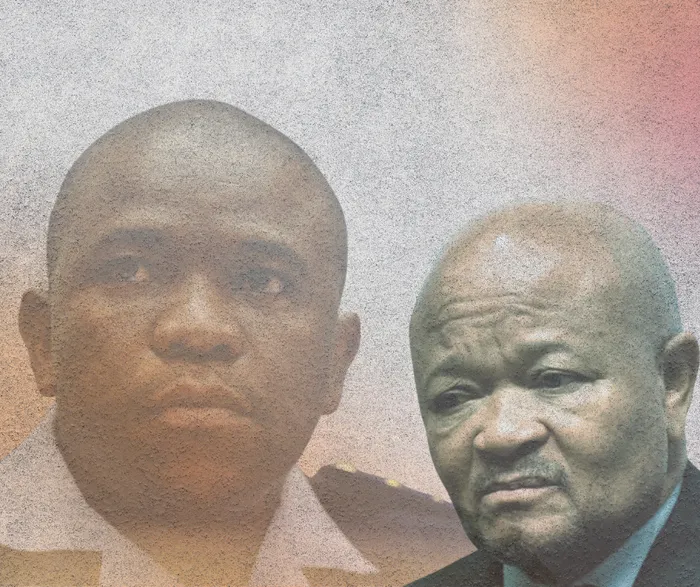Parliament to Probe Explosive SAPS Corruption Claims Amid Public Fury Over Minister’s Leave of Absence
POLITICAL STORM

Mkhwanazi’s testimony has triggered a political storm. In a widely covered media briefing, he alleged that Minister Mchunu personally intervened in police operations to shield certain political and business figures from prosecution.
Image: IOL Graphics
Parliament’s Police and Justice Committees will meet this Wednesday to begin formal investigations into serious allegations of corruption and political interference within the South African Police Service (SAPS). The inquiry follows shocking claims made by KwaZulu-Natal Police Commissioner Lieutenant General Nhlanhla Mkhwanazi, who accused Police Minister Senzo Mchunu and several senior law enforcement figures of obstructing justice and colluding with criminal networks.
Mkhwanazi’s testimony has triggered a political storm. In a widely covered media briefing, he alleged that Minister Mchunu personally intervened in police operations to shield certain political and business figures from prosecution. According to Mkhwanazi, Mchunu ordered the disbandment of a key task team investigating political killings in KwaZulu-Natal. He also claimed Mchunu instructed that over 120 sensitive dockets be withdrawn, allowing suspects with political ties to avoid arrest or investigation.
The commissioner further said the interference was not isolated but pointed to a broader pattern involving syndicates of politicians, businesspeople, and some police officials, particularly in KwaZulu-Natal. He called the situation a "national crisis" and said it severely undermined the SAPS' ability to serve the public.
In response to the allegations, President Cyril Ramaphosa granted Minister Mchunu a leave of absence, effective immediately. The President also announced the establishment of a judicial commission of inquiry to fully investigate Mkhwanazi’s claims. Shadrack Sibiya, the Deputy National Commissioner for Crime Detection, has also been placed on special leave. He was formally notified of this by his superior, National Police Commissioner Fannie Masemola, on Monday.
However, the President’s decision to merely place Mchunu on leave has sparked widespread criticism from opposition parties, civil society groups, and members of the public. Many believe that a leave of absence is not a strong enough response to the gravity of the accusations. The Democratic Alliance and Economic Freedom Fighters have both called for Mchunu’s immediate dismissal, arguing that the credibility of SAPS and the government is at stake.
“This is not the time for half measures,” said DA leader John Steenhuisen. “Minister Mchunu stands accused of the most serious abuse of power. Placing him on leave rather than suspending or firing him suggests a government more concerned with damage control than accountability.”
Social media has also seen growing unrest, with hashtags such as #FireMchunu and #SupportMkhwanazi trending. Protests have been reported in parts of KwaZulu-Natal and Gauteng, with demonstrators calling for a complete overhaul of the police leadership.
Wednesday’s committee sessions are expected to focus on outlining the framework for Parliament’s inquiry, which will operate alongside the judicial commission. Lawmakers are anticipated to request further evidence from Mkhwanazi and may summon other high-ranking officials implicated in his accusations.